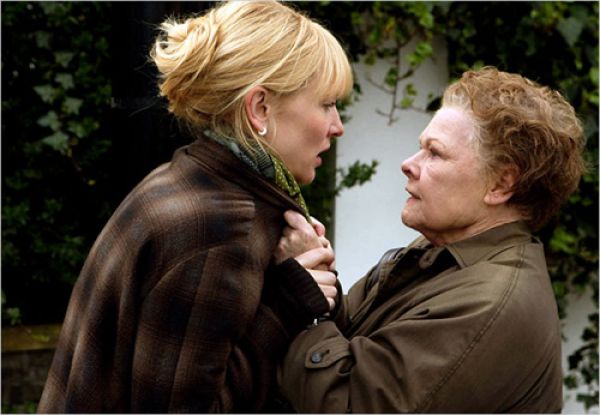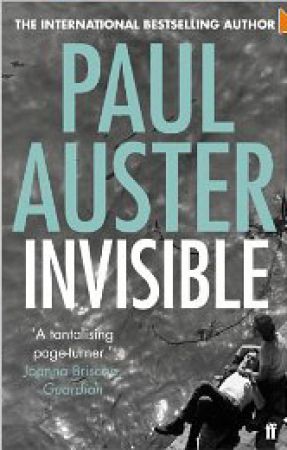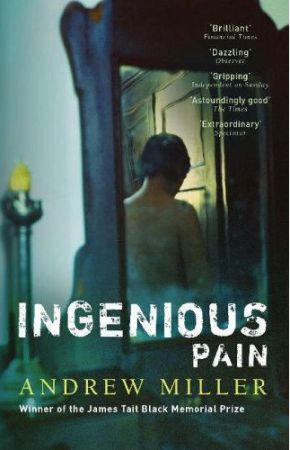My Summer Reading: Writer Patrick Marber | reviews, news & interviews
My Summer Reading: Writer Patrick Marber
My Summer Reading: Writer Patrick Marber
The writer is impressed by a poet's debut novel
Next up in our summer reading series is dramatist Patrick Marber whose shrewd, sometimes excoriating, but always riveting observations of the human condition in plays such as Closer always manage to pull off that rare trick of appealing to critics and audiences alike.
Born in 1964, Marber spent several years being a stand-up comic and has said that it was writing collaboratively on shows such as Radio 4’s On The Hour and Knowing Me, Knowing You - and the latter's extremely successful television spin-off – alongside Armando Ianucci and Steve Coogan, that gave him the confidence to write plays.
 His first play, Dealer’s Choice, was a huge success, but it was his third play, Closer, which he also directed, that gave him real theatrical clout. It opened in the Cottesloe, the National Theatre’s smallest space, transferred to the larger Lyttelton Theatre and then to the West End. It ran for six months on Broadway, has been translated into over 30 languages and performed in 50 other countries. He also wrote the screen adaptation, starring Julia Roberts.
His first play, Dealer’s Choice, was a huge success, but it was his third play, Closer, which he also directed, that gave him real theatrical clout. It opened in the Cottesloe, the National Theatre’s smallest space, transferred to the larger Lyttelton Theatre and then to the West End. It ran for six months on Broadway, has been translated into over 30 languages and performed in 50 other countries. He also wrote the screen adaptation, starring Julia Roberts.
Marber’s directing credits include Blue Remembered Hills by Dennis Potter, The Old Neighbourhood by David Mamet, The Caretaker by Harold Pinter and 1953 by Craig Raine. He is also a skilled interpreter of other writers’ work – his second play, After Miss Julie, a version of Strindberg’s Miss Julie, transferred to Broadway and he received an Academy nomination for his screenplay based on Zoe Heller’s novel, Notes on a Scandal (with Cate Blanchett and Judi Dench, pictured above right).
I've just finished Invisible by Paul Auster. I love his work and have read most of it. As well as the novels I particularly like his notebooks, personal essays and short prose pieces. Anyway, Invisible is about numerous different but related things. There's a fair amount of racy sex, there's a thriller element and there is mystery and sadness. Not, perhaps, an obvious summer read (though the heat of summer is brilliantly invoked) but I loved reading it this summer.
 [Extract from Invisible by Paul Auster (Faber 2010): pp 4-6]
[Extract from Invisible by Paul Auster (Faber 2010): pp 4-6]
I have no memory of why I was there. Someone must have asked me to go along, but who that person was has long since evaporated from my mind. I can’t even recall where the party was held – uptown or downtown, in an apartment or a loft – nor my reason for accepting the invitation in the first place, since I tended to shun large crowds, embarrassed by the shyness that would overcome me in the presence of people I didn’t know. But that night, inexplicably, I said yes, and off I went with my forgotten friend to wherever it was he took me.
What I remember is this: at one point in the evening, I wound up standing alone in the corner of the room. I was smoking a cigarette and looking at the people, dozens upon dozens of young bodies crammed into the confines of that space, listening to the mingled roar of words and laughter, wondering what on earth I was doing there, and thinking that perhaps it was time to leave. An ashtray was sitting on a radiator to my left, and as I turned to snuff out my cigarette, I saw that the butt-filled receptacle was rising toward me, cradled in the palm of a man’s hand. Without my noticing them, two people had just sat down on the radiator, a man and a woman, both of them older than I was, no doubt older than anyone else in the room – he around 35, she in her late twenties or early thirties.
They made an incongruous pair I felt. Born in a rumpled, somewhat soiled while linen suit with an equally rumpled white shirt under the jacket and the woman (whose name turned out to be Margot) dressed all in black. When I thanked him for the ashtray, he gave me a brief, courteous nod and said My pleasure with the slightest hint of a foreign accent. French or German, I couldn’t tell which, since his English was almost flawless. What else did I see in those first moments? Pale skin, unkempt reddish hair (cut shorter than the hair of most men at the time), a broad, handsome face with nothing particularly distinctive about it (a generic face, somehow, a face that would become invisible in any crowd), and steady brown eyes, the probing eyes of a man who seemed to be afraid of nothing. Neither thin nor heavy, neither tall nor short, but for all that an impression of physical strength, perhaps because of the thickness of his hands. As for Margot, she sat without stirring a muscle, staring into space as if her central mission in life was to look bored. But attractive, deeply attractive to my twenty-year-old self, with her black hair, black turtleneck sweater, black miniskirt, black leather boots, and heavy black makeup around her large green eyes. Not a beauty perhaps, but a simulacrum of beauty, as if the style and sophistication of her appearance embodied some feminine ideal of the age.
Born said that he and Margot had been on the verge of leaving, but then they spotted me standing alone in the corner, and because I looked so unhappy, they decided to come over and cheer me up – just to make sure I didn’t slit my throat before the night was out. I had no idea how to interpret his remark. Was this man insulting me, I wondered, or was he actually trying to show some kindness to a lost young stranger? The words themselves had a certain playful, disarming quality, but the look in Born’s eyes when he delivered them was cold and detached and I couldn’t help feeling that he was testing me, taunting me, for reasons I utterly failed to understand.
I shrugged, gave him a little smile and said: Believe it or not, I’m having the time of my life.
- Invisible by Paul Auster (Faber 2010)
A few summers ago I read Ingenious Pain by Andrew Miller. It had sat on my shelf since the mid-Nineties when it was published to considerable acclaim. It's a compressed epic set in the 18th century. It's about science and love and the terrible need to feel. It's an astonishingly brilliant first novel. The prose style as rapturous as Nabokov at times. This book moved me more than anything I'd read for years. I admire it with a passion. For me it's one of the greats.
 [Extract from Ingenious Pain by Andrew Miller (Sceptre 1998): pp 4-6]
[Extract from Ingenious Pain by Andrew Miller (Sceptre 1998): pp 4-6]
Ross strips the body, drops the gown on to the floor. From the bag he takes a knife and passes it to Burke who looks along its edge and nods. Burke places a hand on James’s chin, and slashes the trunk from the top of the sternum to a point just above the pubic hair. He then cuts across below the ribs to make an inverted cross, bloody-edged, moist. He pauses to take a spectacles case on to his face, blinking. He mutters something under his breath, takes hold of a flap of skin and fat and peels it away. He uses the knife to free it, to coax it from the matter below. He has a short stick he swooped up on their way over from the house. He uses it to prod at James’s guts.
‘Would you care for a more intimate view, Reverend? You can see little from there, I think.’
The Reverend shuffled forward. Burke disgusts him.
Dr Ross says: ‘The Reverend’s interest is in the invisible tenant of the house rather than in the house itself. Heh?’
The Reverend Lestrade says: ‘Just so, sir.’
‘Now for the heart,’ Burke says.
They begin to tear at the chest, working at the ribs with a handsaw, then using the knife to worry through the great vessels. The doctors are excited, bright as eggs. There shall be a paper in this, societies addressed, circles of illuminati: ‘Some thoughts, hm, upon the Case of the Late Jim Dyer. An Enquiry into …the Curious and Remarkable…who until his twenty-something year was insensible to…knew not…entirely without all sensation… feeling… knowledge of …pain. With proofs, illustrations, exhibits and so forth.’
The Reverend turns away, looks out at the yard where two birds peck grain from a cake of dung. Beyond, in the wall where he grows sweet-william, a green door leads into the garden. He associates that door with Janes; James coming through and examining the pears or simply standing in the yard, frowning as if he could not remember what he was about.
Noises, like a boot stepping in mud, disturb him. Ross has got it in his hands, the broken muscle of James Dyer’s heart. He looks, thinks the Reverend, as if he might like to eat it, and only some very little shame is keeping him from it. Burke wipes his hands on a rag and takes a folded newspaper from his coat pocket. He opens the paper, spreading it over James’s thighs, then takes the heart from Ross and lays it in the paper. ‘If you have no objection Reverend…’ He wraps the heart, stows it in the bag.
- Ingenious Pain by Andrew Miller (Sceptre 1998)
I didn't go away this summer. Or rather, I did but very briefly. At the moment I'm reading Heartbreak, a novel by Craig Raine. I should declare that Mr Raine is one of my best friends and I'm a long-term fan of the man and his work. In this respect I seem to be in a minority. Heartbreak has not had good reviews in general. Except this one: it's utterly wonderful.
- Find plays and screenplays by Patrick Marber on Amazon
- Find the DVD of Notes on a Scandal, screenplay by Patrick Marber on Amazon
- Find the DVD of Closer, screenplay by Patrick Marber on Amazon
- Find more novels by Andrew Miller on Amazon
- Find more novels by Paul Auster on Amazon
- Find poetry and criticism by Craig Raine on Amazon
- My Summer Reading: other guests include ballerina Tamara Rojo, songwriter Tom Russell, theatre designer Tobias Hoheisel, sculptor Cornelia Parker, musician Mike Scott, dancer Carlos Acosta
Explore topics
Share this article
more Theatre
 London Tide, National Theatre review - haunting moody river blues
New play-with-songs version of Dickens’s 'Our Mutual Friend' is a panoramic Victori-noir
London Tide, National Theatre review - haunting moody river blues
New play-with-songs version of Dickens’s 'Our Mutual Friend' is a panoramic Victori-noir
 Machinal, The Old Vic review - note-perfect pity and terror
Sophie Treadwell's 1928 hard hitter gets full musical and choreographic treatment
Machinal, The Old Vic review - note-perfect pity and terror
Sophie Treadwell's 1928 hard hitter gets full musical and choreographic treatment
 An Actor Convalescing in Devon, Hampstead Theatre review - old school actor tells old school stories
Fact emerges skilfully repackaged as fiction in an affecting solo show by Richard Nelson
An Actor Convalescing in Devon, Hampstead Theatre review - old school actor tells old school stories
Fact emerges skilfully repackaged as fiction in an affecting solo show by Richard Nelson
 The Comeuppance, Almeida Theatre review - remembering high-school high jinks
Latest from American penman Branden Jacobs-Jenkins is less than the sum of its parts
The Comeuppance, Almeida Theatre review - remembering high-school high jinks
Latest from American penman Branden Jacobs-Jenkins is less than the sum of its parts
 Richard, My Richard, Theatre Royal Bury St Edmund's review - too much history, not enough drama
Philippa Gregory’s first play tries to exonerate Richard III, with mixed results
Richard, My Richard, Theatre Royal Bury St Edmund's review - too much history, not enough drama
Philippa Gregory’s first play tries to exonerate Richard III, with mixed results
 Player Kings, Noel Coward Theatre review - inventive showcase for a peerless theatrical knight
Ian McKellen's Falstaff thrives in Robert Icke's entertaining remix of the Henry IV plays
Player Kings, Noel Coward Theatre review - inventive showcase for a peerless theatrical knight
Ian McKellen's Falstaff thrives in Robert Icke's entertaining remix of the Henry IV plays
 Cassie and the Lights, Southwark Playhouse review - powerful, affecting, beautifully acted tale of three sisters in care
Heart-rending chronicle of difficult, damaged lives that refuses to provide glib answers
Cassie and the Lights, Southwark Playhouse review - powerful, affecting, beautifully acted tale of three sisters in care
Heart-rending chronicle of difficult, damaged lives that refuses to provide glib answers
 Gunter, Royal Court review - jolly tale of witchcraft and misogyny
A five-women team spell out a feminist message with humour and strong singing
Gunter, Royal Court review - jolly tale of witchcraft and misogyny
A five-women team spell out a feminist message with humour and strong singing
 First Person: actor Paul Jesson on survival, strength, and the healing potential of art
Olivier Award-winner explains how Richard Nelson came to write a solo play for him
First Person: actor Paul Jesson on survival, strength, and the healing potential of art
Olivier Award-winner explains how Richard Nelson came to write a solo play for him
 Underdog: the Other, Other Brontë, National Theatre review - enjoyably comic if caricatured sibling rivalry
Gemma Whelan discovers a mean streak under Charlotte's respectable bonnet
Underdog: the Other, Other Brontë, National Theatre review - enjoyably comic if caricatured sibling rivalry
Gemma Whelan discovers a mean streak under Charlotte's respectable bonnet
 Long Day's Journey Into Night, Wyndham's Theatre review - O'Neill masterwork is once again driven by its Mary
Patricia Clarkson powers the latest iteration of this great, grievous American drama
Long Day's Journey Into Night, Wyndham's Theatre review - O'Neill masterwork is once again driven by its Mary
Patricia Clarkson powers the latest iteration of this great, grievous American drama
 Opening Night, Gielgud Theatre review - brave, yes, but also misguided and bizarre
Sheridan Smith gives it her all against near-impossible odds
Opening Night, Gielgud Theatre review - brave, yes, but also misguided and bizarre
Sheridan Smith gives it her all against near-impossible odds

Add comment